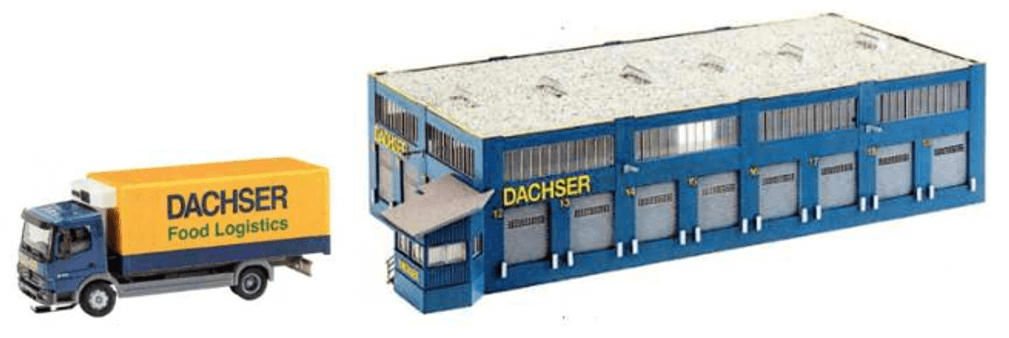
It’s all fun and games – Trade mark on miniature models
Using a trade mark on miniature models does not take unfair advantage of the repute of the trade mark if the model is realistic and there is no attempt to exploit the reputation of the trade mark for commercial purposes beyond the true-to-life depiction.
Background – use of a logistics brand for toys
A manufacturer of miniature models offered a miniature model truck branded with the well-known name of a German logistics company and a corresponding model of a logistics facility:

The logistics company initiated trade mark infringement proceedings against the model manufacturer based on German trade marks registered for goods and services in connection with transport and logistics in classes 9, 35, 39 and 41. It claimed its well-known trade marks were taken unfair advantage of.
Procedural History – lawsuit based on a well-known trade mark
The Cologne Regional Court had found trade mark infringement. Although it ruled that the true-to-life depiction of a replica toy vehicle using the vehicle manufacturer’s mark does not take unfair advantage, it did find that a mark being used on the original only for commercial purposes (i.e. the logistics company’s mark on the side of the vehicle) did take unfair advantage.
The model manufacturer appealed the decision, and the Cologne Higher Regional Court reversed the judgment and dismissed the action. The Higher Regional Court found that a miniature version of a real vehicle without a doubt takes advantage of the repute of a trade mark but that use is not unfair.
The court applied the same to the logistics facility even though an exact original building does not exist in real life. The reason for this is that the logistics company operates facilities possessing the same characteristics that create the same overall impression as the defendant’s miniature model.
The logistics company lodged a further appeal with the German Federal Court of Justice.
Decision – no unfair advantage in offering replica toys
The Federal Court of Justice ruled that the only claim which could succeed in this scenario would be based on the trade marks’ reputation as there was no similarity in the goods and services: transport/logistics (scope of the trade marks’ protection) and manufacturing and sale of model toys. The Federal Court further held that even if the trade marks were registered in class 28, there would be no likelihood of confusion because consumers would not believe that the trade mark owner manufactured the model or that there was a contractual relationship between the owner and the toy maker. The reason for this is the long-standing tradition of detailed replicas in the model and toy sector prompting the public to only see a copied detail of reality. The fundamental function of a trade mark – to indicate the origin of a product – would not be affected.
In any event the Federal Court of Justice sided with the Higher Regional Court that the use of the logistics company’s trade marks on the miniature models did not take unfair advantage.
Although the toy manufacturer may benefit from a possible reputation of the used trade marks, thereby increasing the attractiveness of its miniature models, this is an inevitable consequence of reproducing an object existing in reality. Therefore, as long as the miniature version doesn’t try to commercially use the original’s reputation beside the true-to-life replica, there is no unfairness.
In the past, the Federal Court of Justice had held this only in relation to the original real-life vehicle’s brand being reproduced on a replica toy vehicle. But it has now applied the same to a trade mark being used in connection with providing a service, i.e. transport/logistic services in the case at hand, which is not part of the copied vehicle as such.
Practical Implications – trade marks are not a free pass against miniature models
The restrictions on trade mark owners with regard to miniature models have been extended and no longer apply only to vehicle manufacturers. Service providers also need to be aware of this case law if they wish to enforce against miniature models.








